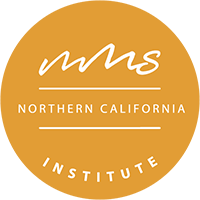These days, and in some circles, the notion of working with a professional or executive coach is as ubiquitous as working with a personal fitness trainer or having a therapist. There are a couple of key reasons for this: the pace of changing technology is disrupting jobs and careers faster than ever before and on-the-job training for leaders and aspiring leaders appears to be non-existent. Now, more than ever before, young professionals are finding themselves in management-level jobs—without the experience or skills to manage others—and yet, are required to perform as successful managers and leaders. They need to find ways to ramp up people management and leadership skills rapidly if they are not to lose valuable employees.
For those unfamiliar with the concept of professional or executive coaching, here is a brief article on what coaches do and what to expect from a coach. This article further explains what to expect on the journey of working with a coach and offers things to consider about why you might want to work with one.
What is Professional or Executive Coaching?
First of all, it’s very important to understand that a professional or executive coach is not a therapist, and is very different from a mentor, advisor or a consultant. Briefly summarizing an earlier, detailed post on this topic, titled, Do You Need a Therapist, Mentor, Consultant or Professional Coach?, here is the difference:
- A therapist tends to work on the past, as well as family-of-origin issues and emotional disorders.
- An advisor or consultant is someone who has an expertise in a particular area and they tell you step-by step how to implement their plan.
- A coach supports you in creating a new present and future with specific objectives and outcomes. A coach might address the past with their client simply for reference or understanding, but the focus is on moving towards meeting client-defined objectives.
The Right Time to Work with a Professional or Executive Coach
People often work with a coach when they’ve found themselves at a stuck place in their lives, or when they notice patterns in their career or life that they want to change. Working with a coach is also supportive during big life transitions.

When big change happens in someone’s life and where new skills are required, it is not uncommon for doubt, uncertainty, and even low-level anxiety to enter one’s thoughts. The bigger the changes, the more the potential for getting overwhelmed by the change.
It is true that most of us are creatures of habit. We like familiar, predictable, stable, controllable circumstances and transitions can be unsettling for anyone.
It’s in these situations where working with a coach can be helpful and supportive. A coach has the skill set to help you untangle the spaghetti of conflicting and stressful thoughts in your mind so you can get clear on your wants, needs, and desires are and so that you can, create an action plan for success, and then implement the plan to the results you desire.
Here are some situations where you might consider hiring a coach:
- I want to become a director at my company but I can’t seem to get there.
- I have a role that requires public speaking and I’m terrified of public speaking.
- I just took on a management level role and I have the sense that I don’t deserve it. This very well could be a case of imposter syndrome. You are not alone in feeling this; a 2020 KPMG study of 750 women executives in the U.S. found that a shocking 75% of them had experienced imposter syndrome at some point in their career. And, very interestingly, the same study found that over 70% of the “executive women looked to the advice of a mentor or trusted advisor when doubting their abilities to take on new roles.”
- I want to make a career change and I don’t feel comfortable articulating why I’d be good in this new role.
Oftentimes, a company will hire a professional or executive coach to work with one of their leaders to help them develop in areas where they have blind spots.
For example:
- She’s a great leader but tends to manage up and doesn’t build feelings of good will with her peers.
- He’s moving into a strategic role and can’t seem to let go of the day-to-day, tactical work.
- She is brilliant in her role but always needs to be right. It’s causing discord with her direct reports.
A coach essentially helps their clients determine their vision, strategy, action plan, and then supports them in realizing their objectives.
Look for Action-Oriented Support from Your Coach
Oftentimes, professional or excecutive coaches will require clients to do homework. This homework could include: journal writing, taking a class or reading specific material that will be supportive in the client’s growth and development.
It is very important to know that a coach doesn’t tell their clients what to do. They guide their clients towards their own wisdom and encourage the client to investigate their own thoughts and creative solutions.
Here is a great example of action-oriented coaching by Charles Vivier, one of the MMS NorCal coaches. (This excerpt is taken from a testimonial provided by an executive coached by Charles Vivier):
In each session we’d decide at the beginning what I wanted to accomplish and then we’d do it. There was a level of accountability and immediate action that I’d never had in any other setting. “OK, you want to do XYZ. How does it feel right now? Do you want to practice saying what you need to say? If you are ready, should you schedule the meeting or make a call right now? When will you be able to do what’s next? Do you want to set a date in your calendar when you will do it or have it done.” Most of the time I’d just do the thing immediately.
Set Objectives with Your Coach
Unlike therapy, most people work with a coach for a specific period of time. Objectives for coaching are usually set at the beginning of a coaching engagement and once those objectives are met, the coaching relationship is complete. It’s important to note that development happens in biological time and change doesn’t happen overnight.
While each coach and how they manage their coaching engagements are different, I tend to work with my clients for a period of six months to a year.
Professional and Executive Coaching Modalities
Some coaches are hired because of their professional background and expertise. In these cases, along with asking open-ended questions, they bring some modalities that might be of support to their clients.
As an example, a coach may be an experienced yoga teacher and practitioner and can help you design a grounding routine as a part of your coaching. This can help you reduce your stress and frustration levels, be present, silence your mind, and relax you so you can have a more impactful coaching session. A coach with a mindfulness practice can take you through a visioning process to help identify goals.
Coaches who have been athletes and continue a practice of vigorous exercise can help you connect your mind and body through high-intensity or low-intensity moves. Using both mind and body, you can tap into feelings, into stress, release tension, uncover what’s holding you back in a completely different way.
Sometimes, we may believe there is no problem, and doing yoga or other body techniques (for example, breathwork or qigong) can open the mind to a different reality. Some coaches even use horses to help clients face their fears and process emotions.
The key to hiring your own coach is to trust your intuition when hiring someone. Read about their backgrounds and see if their life and professional experience resonates with you. Most coaches will offer a Chemistry Session for no-charge so the two of you can get to know one another and decide if it’s a fit.
Check out the MMS NorCal Coaching Collective which offers a variety of trained, professional, executive, relationship, and life coaches with many modalities, skills, and passions. You may find the right coach for you in the collective!
Carla Morton is an ICF credentialed Leadership Coach, Executive Director of MMS Northern California, and a Co-Founder of the MMS NorCal Coaching Collective. Carla coaches business leaders and professionals through critical changes in their professional and personal lives so they can thrive as fully integrated, take-charge rockstars. Her clients come from companies, such as, Marqueta, IBM, Bank of the West, Meals-on-Wheels, McGuire Real Estate, Autodesk and Open DNS/Cisco. Carla also coaches women entrepreneurs for the Bay Area non-profit leadership organization, How Women Lead. 


